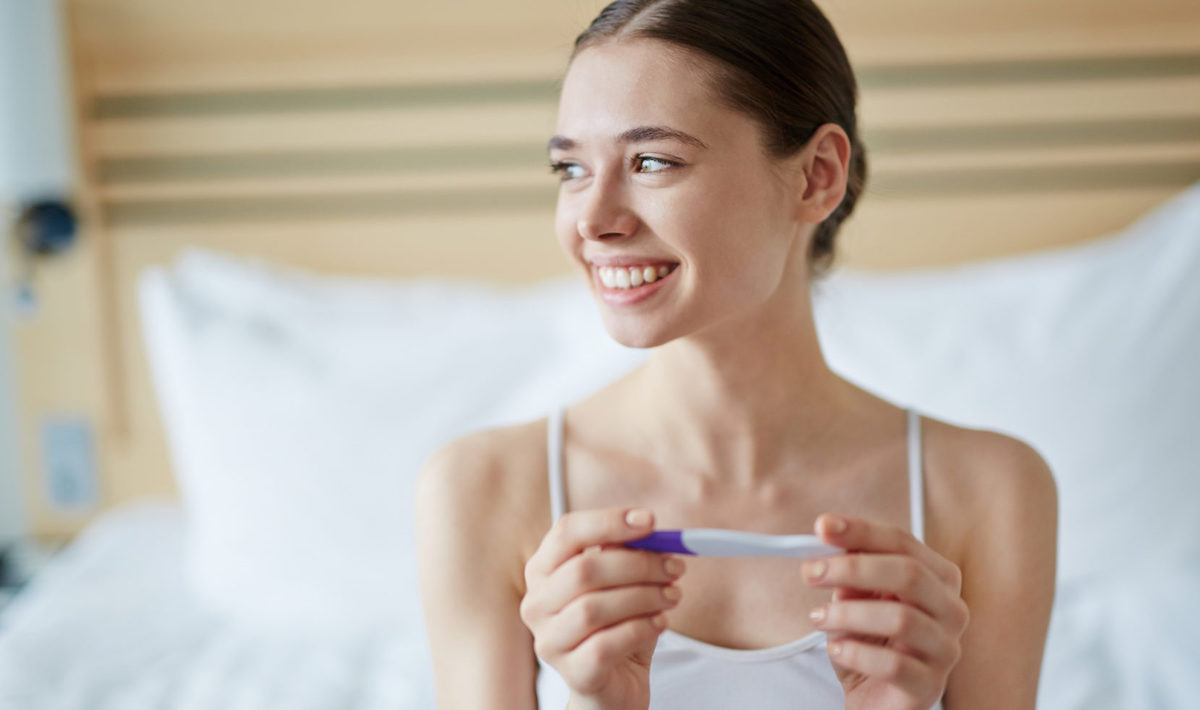Written By: Women & Infants Fertility Center on August 7, 2025
Originally published March 2022
At-home fertility tests have become a popular first step for couples trying to conceive. We often see patients who are already using these over-the-counter kits – or are curious about them – before they come in for an evaluation. While these tools can be useful, they’re not a substitute for medical advice or testing by a fertility specialist.
There’s no one-size-fits-all test when it comes to fertility. The three main at-home options include ovulation predictor kits, follicle-stimulating hormone (FSH) tests, and semen analysis kits. Each has its pros and limitations. It's important to understand what these tests can and can't tell you – and when it’s time to speak with a fertility specialist for a deeper look.
Ovulation Predictor Kits
These are among the most widely used fertility tools at home. They work by measuring luteinizing hormone (LH) in your urine, which surges about 24 to 48 hours before ovulation. That surge is your body’s signal that the egg will be released soon, making it the optimal time for conception.
Women usually start testing around day 9 or 10 of their cycle and continue testing every 12 to 24 hours for a week. If no surge is detected, it’s a good idea to see a specialist to evaluate your LH levels through a blood test.
These kits can be especially helpful, but they’re not for everyone. For example, women with polycystic ovary syndrome (PCOS) often have elevated LH levels throughout their cycle, which can lead to false positives. They may also experience long cycles without ovulation, which makes it difficult and expensive to continue testing.
Ovulation Kit Tips:
- Test in the morning when urine is most concentrated for better accuracy.
- Budget-friendly options (around $1/test) are just as effective as high-end digital kits.
- False results can happen from diluted urine or miscalculating cycle days - track carefully
- Ovulation usually occurs about 36 hours after a positive result, so timing is key.
- Cycle-tracking apps may help, but only about 15% of women have predictable cycles each month.
FSH Test
Follicle-stimulating hormone (FSH) is a key hormone that helps determine ovarian reserve – the number and quality of remaining eggs. High levels can signal that the ovaries are producing fewer healthy eggs, sometimes indicating a transition toward menopause.
At-home FSH tests use urine, while clinical testing is done through blood. The best time to test is day 3 of the menstrual cycle, although days 2 to 4 can also be used. The results will categorize FSH levels as normal or elevated.
FSH Tips:
- These tests don’t account for other important fertility markers like estradiol or anti-Müllerian hormone, which are better indicators of ovarian reserve.
- FSH levels can vary cycle to cycle, so one high reading isn’t necessarily a cause for alarm.
- Always confirm at-home FSH results with a blood test through a fertility specialist.
- Women on hormonal birth control or certain psychiatric medications should avoid this test, as it may skew results.
At-Home Semen Analysis Test
This newer option allows men to collect a semen sample at home to assess sperm count based on protein detection. These tests don’t evaluate sperm motility or morphology, which are equally important factors for fertility.
Tests typically require abstaining from ejaculation for 2 to 7 days before collecting a sample. They can range from $30 to $60 per test, making them pricier than other options.
Semen Analysis Test Tips:
- Testing too soon after a previous ejaculation may show low counts simply due to timing.
- At-home sperm tests offer a rough idea of quantity, but not quality. Lab analysis by an andrologist is more reliable.
Final Thoughts
At-home fertility tests can be a helpful starting point, especially if you’re just beginning your journey to conception. But they’re best used as screening tools, not a diagnosis.
Follow instructions closely, be mindful of their limitations, and don’t rely on them alone. If you’ve been trying to conceive for a year (or six months if you’re over 35), it’s time to consult a fertility specialist.
We’re here to help you understand what’s going on and guide you toward the next steps in building your family.
 Tips on Getting the Most from At-Home Fertility Tests"
class="bg-img"
fetchpriority="high"
loading="eager"
decoding="async">
Tips on Getting the Most from At-Home Fertility Tests"
class="bg-img"
fetchpriority="high"
loading="eager"
decoding="async">